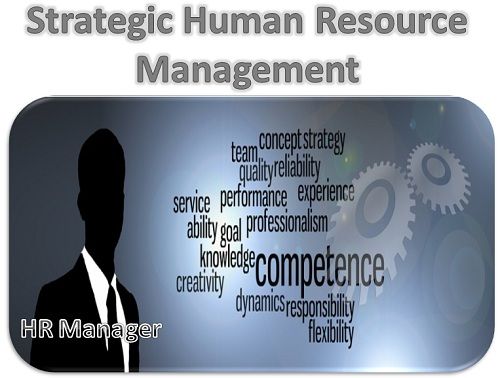Contents
Strategic Human Resource Management (SHRM) is one of the top approaches applied in the contemporary business environment, as it perfectly interlinks human resource strategies with general organizational goals. It involves different components, each uniquely designed to maximize the efficiency and value of the workforce toward unequivocal contributions to the growth trajectory of the company. Delving into Key Aspects of SHRM
Delving into Key Aspects of SHRM
Planning for Success,
Meticulous planning reigns at the heart of Strategic Human Resource Management. where effective collaboration with senior management paves the way for the alignment of HR strategies with short-term and long-term business objectives.
These involve the development of potential leaders and the smooth transitioning of people in key roles to increase organizational resilience.
Employee Relations
The nurturing of employee relations is the need for the most conducive workplace environment that will breed employee satisfaction, motivation, and loyalty. Strengthening employee relations helps in building collaboration in the productivity culture of organizations and eliminates problems with turnover rates, hence continued success in organizational achievement.
Optimizing Compensation and Benefits
In the SHRM context, the compensation and benefit systems are more than merely talent attraction and retention systems. They are crafted to meet organizational financial goals related to ensuring organizational viability through fair compensation.
Strategic Excellence in Performance Management
Strategic Human Resource Management is oriented toward a high level of accountability for organizational goals and merit-based assessment of employees’ performance. This is at the core of the strategy employed by executives to drive an improvement in the overall organizational success and financial performance.
Data-Driven
Fourth, data-orientedness includes the collaboration of top management to design operational metrics and the application of data analytics. The organizations through information that shows the trends and data are able to lower the risks of poor hiring, allocate resources, and gain or maintain a competitive strength in a hyper-competitive environment.
Unveiling the Benefits of Strategic Human Resource Management
Benefits that SHRM will bring include improved overall informed decision-making in the HR department and increased job satisfaction among employees. Organizations applying Strategic Human Resource Management (SHRM) effectively show a competitive advantage manifested by increased customer service, employee morale, and retention rates. Besides, SHRM allows room for continuous improvement since it offers avenues to assess programs that manage to keep them in line with business and HR strategies.
Negotiation in Managing the Stages of Formulating a Strategic HR Plan
The formulation of strategic human resources planning is such a tightly managed process that includes the whole set of values, visions, mission statements, and business planning. It necessarily calls for the process of identifying areas conducive to productivity improvement, optimization of customer services, employee motivation, and skills development. An HR plan manages to encapsulate all sorts of outcomes, from improving profitability using strategic HR planning to maintaining the most competitive quality standards.
Problems in Implementation
But nature abhors a vacuum, and that leaves those with promising talents into tricky areas—as implementing an effective strategic HR plan is definitely one of the trickier things that a firm can do. They tread on a fine maze of aligning HR strategies with business goals, and at the same time, keep abreast with the needs of employees and peculiarities of the industry. In fact, handling the barriers to implementation will need organizations to use data-driven decision-making that strives to seamlessly integrate SHRM frameworks with organizational frameworks.
Conclusion: The Imperative of Strategic HR Management
Strategic Human Resource Management epitomizes the essence of organizational success through the advocacy of having a highly committed and capable workforce. This means going beyond the limits of the conventional personnel methods and focusing attention on leadership development, managing performance, and overall talent optimization. The development and application of a business HR management plan, coming from strategic thinking, becomes an imperative requisite for the business that wants to unfold its full potential in human capital and thus in the context of today’s dynamic business landscape.


